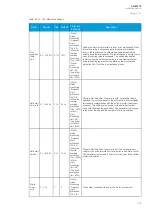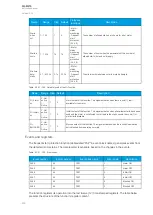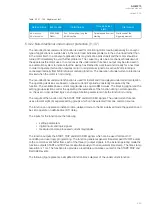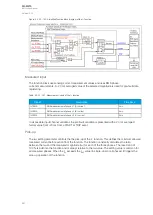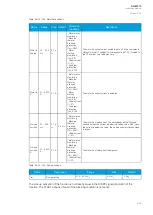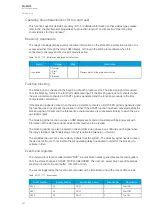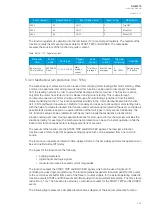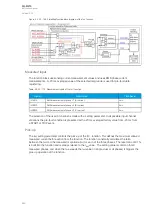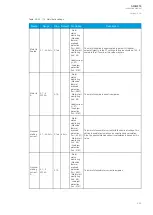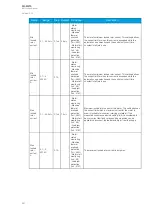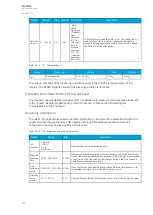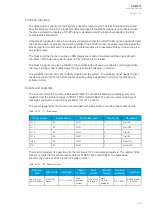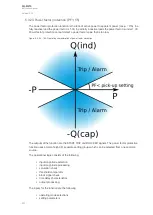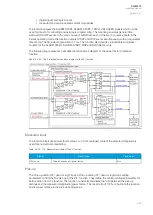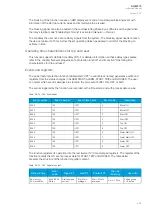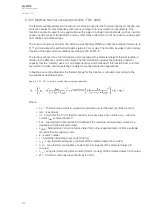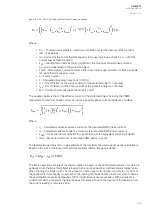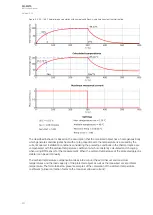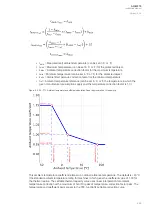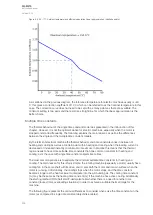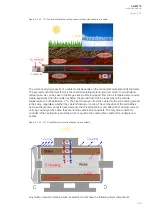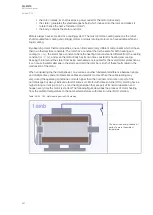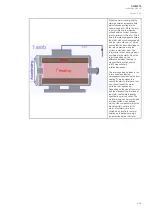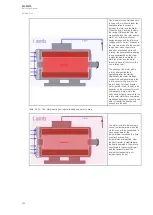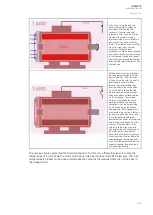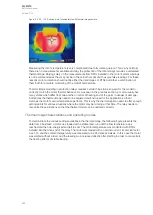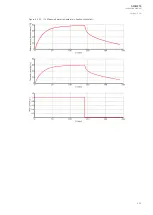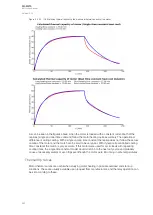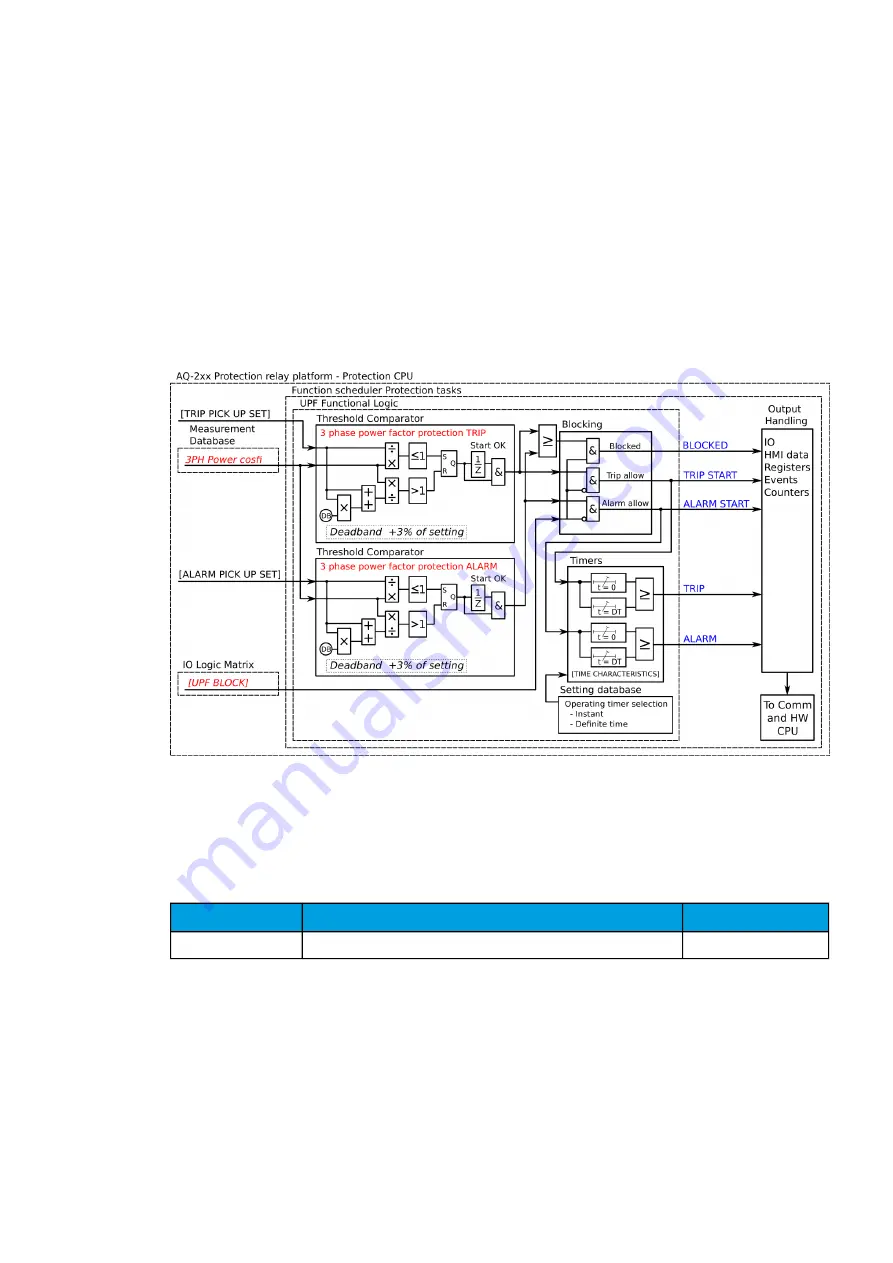
• digital inputs and logic signals
• measured and pre-processed current magnitudes.
The function outputs the ALARM START, ALARM, START, TRIP and BLOCKED signals which can be
used for direct I/O controlling and user logic programming. The function generates general time-
stamped ON/OFF events to the common event buffer from each of the five (5) output signals. In the
instant operating mode the function outputs START and TRIP events simultaneously with an equivalent
time stamp. The time stamp resolution is 1 ms. The function also provides a resettable cumulative
counter for the ALARM START, ALARM, START, TRIP and BLOCKED events.
The following figure presents a simplified function block diagram of the power factor protection
function.
Figure. 5.3.24 - 166. Simplified function block diagram of the PF> function.
Measured input
The function block uses power factor values. A -20 ms averaged value of the selected magnitude is
used for pre-fault data registering.
Table. 5.3.24 - 179. Measurement inputs of the PF< function.
Signal
Description
Time base
3PH cos φ
Three-phase cos phi (power factor)
5ms
Pick-up
The
Pick-up setting PF< (lead or lag) Trip and Pick-up setting PF< (lead or lag) Alarm setting
parameters control the the pick-up of the PF< function. They define the minimum allowed power factor
before action from the function. The function constantly calculates the ratio between the pick-up
settings and the measured magnitude (power factor). The reset ratio of 103 % is built into the function
and is always relative to the pick-up setting value.
A
AQ
Q-M215
-M215
Instruction manual
Version: 2.04
252

